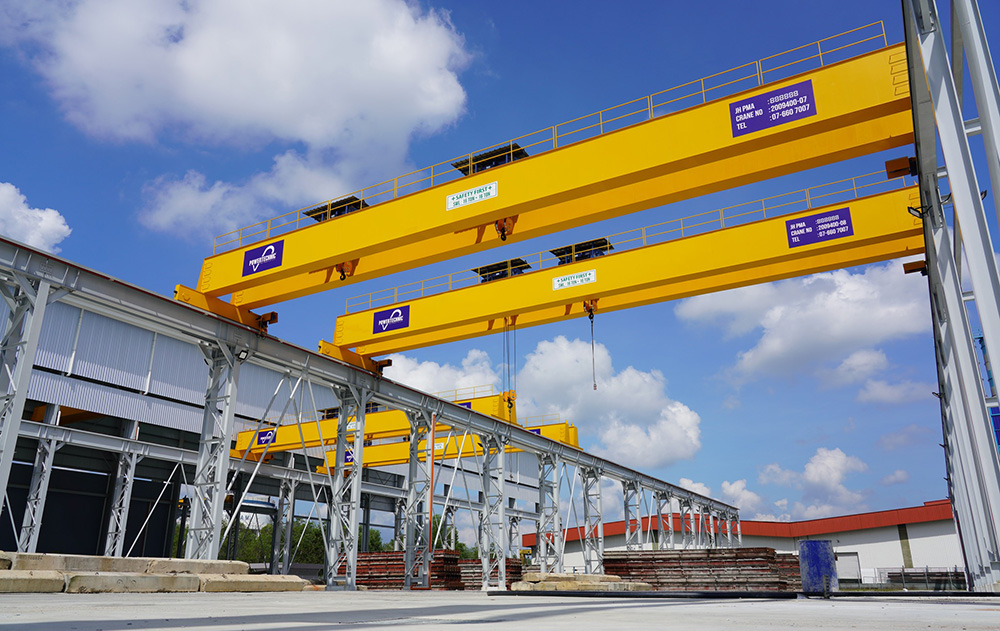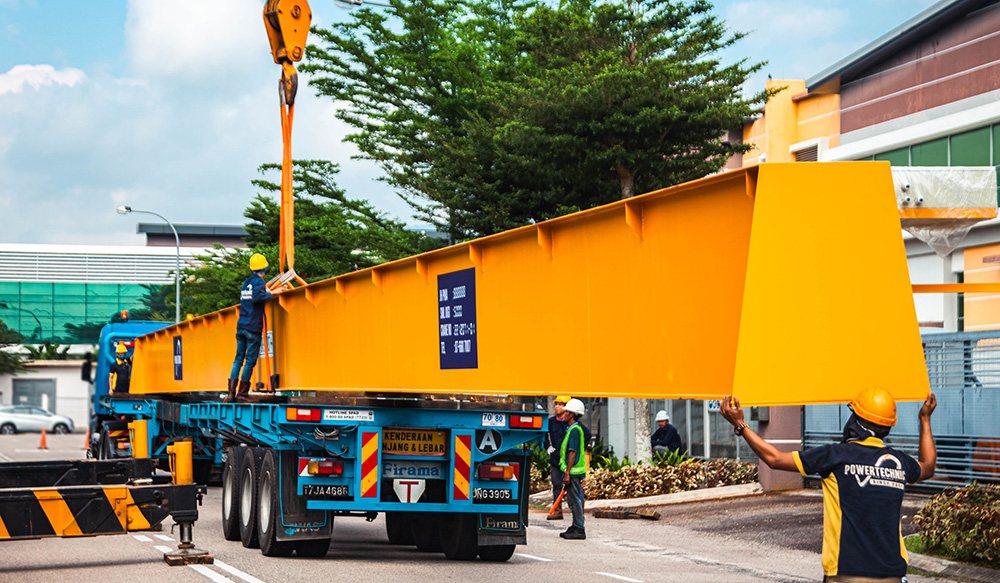JKKP License Renewal
What is a JKKP License?
Why is JKKP Certification Important?
- Ensures compliance with Malaysian safety regulations.
- Minimizes workplace hazards.
- Legal requirements for equipment like goods hoists, lifts, and cranes.
Equipment Requiring JKKP Licensing
- Goods hoists.
- Cranes and overhead cranes.
- Lifts.
- Other heavy machinery subject to regulatory approval.

Certified Equipment
We ensure all our machinery fully complies with JKKP standards by sourcing only certified equipment that meets the stringent safety requirements set by Malaysia’s Department of Occupational Safety and Health (DOSH). Each piece of equipment undergoes thorough inspections and approvals before installation and use, ensuring its safety, reliability, and compliance with legal regulations.

Regular Inspections
To maintain JKKP certification, we conduct periodic inspections and scheduled maintenance of all machinery. These inspections are performed by DOSH-approved professionals, ensuring operational safety and adherence to regulatory standards. This proactive approach minimizes risks, enhances performance, and underscores our dedication to workplace safety and compliance.
Step-by-Step JKKP Certification Process

1. Inspection
Initial assessment of the equipment.

2. Submission
Required documents sent to JKKP.

3. Approval
Certification issued after successful inspection.
Frequently Asked Questions (FAQ)
What is a JKKP License?
The JKKP License is a permit issued by the Department of Occupational Safety and Health (DOSH) Malaysia under the Factories and Machinery Act 1967 (FMA) or Occupational Safety and Health Act 1994 (OSHA). It is required for businesses involving machinery, construction, hazardous processes, or other high-risk operations.
Who needs a JKKP License?
Businesses in the following sectors typically require a JKKP License:
- Factories & manufacturing plants
- Construction sites
- Installation/operation of machinery (boilers, lifts, cranes, etc.)
- Handling of hazardous substances
- Any workplace regulated under OSHA 1994
What are the types of JKKP Licenses?
Common licenses include:
- Certificate of Fitness (CF) for machinery (e.g., boilers, lifts)
- Factory Registrationunder FMA
- Construction Safety & Health (CSH) License
- Approved Contractor for OSH Management (ACOM)
How to apply for a JKKP License?
- Submit an application through JKKP’s online portal (MyKKP) or at a DOSH office.
- Provide required documents (business registration, machinery details, safety reports, etc.).
- Pay the application fee.
- Undergo inspection (if required).
How long is the JKKP License valid?
How to Renew a JKKP License?
- Submit renewal application before expiry (usually 30-60 days in advance).
- Pay renewal fees.
- Provide updated safety inspection reports (if applicable).
- Ensure compliance with latest OSH regulations.
What happens if the license expires?
- Operating without a valid license is an offense under OSHA/FMA.
- Penalties include fines or legal action.
- Late renewals may incur additional charges.
What happens if equipment is not JKKP-certified?
If equipment is not JKKP-certified (or lacks a valid Certificate of Fitness (CF) where required), the consequences can be severe under Malaysian occupational safety laws. Here’s what could happen:
i. Legal Penalties
- Fines: Under the Factories and Machinery Act 1967 (FMA)or Occupational Safety and Health Act 1994 (OSHA), operating uncertified equipment can lead to fines:
- Up to RM50,000(for companies) or RM10,000 (for individuals).
- Possible imprisonment(up to 6 months to 2 years) for serious violations.
- Stop-Work Orders: JKKP (DOSH) can issue a Prohibition Notice, halting operations until compliance is met.
ii. Insurance & Liability Issues
- Insurance Claims May Be Void: If an accident occurs involving uncertified equipment, insurance companies may deny coverage, leaving the business liable for damages.
- Workers’ Compensation Claims: Employers may face lawsuits from injured workers.
iii. Workplace Safety Risks
- Higher Accident Risk: Uninspected equipment may have safety defects, leading to injuries, fatalities, or explosions(e.g., uncertified boilers, cranes, or lifts).
- Increased Scrutiny: JKKP may conduct unannounced inspections, leading to further penalties.
iv. Business Reputation Damage
- Loss of Client Trust: Contractors, clients, or investors may avoid working with a non-compliant company.
- Blacklisting: Repeat offenders may be barred from government projects or industry certifications.
v. Difficulty in Renewing Licenses
Future JKKP license applications (e.g., factory registration, CF renewals) may be rejected due to past non-compliance.
vi. What Should You Do If Equipment Is Not Certified?
- Immediately Stop Using It(if it requires CF under FMA/OSHA).
- Apply for JKKP Certificationvia MyKKP Portal or DOSH office.
- Arrange for Inspectionby a DOSH-approved examiner.
- Rectify Safety Issuesbefore reusing the equipment.
vii. Which equipment requires JKKP certification?
Examples include:
- Lifts & Escalators
- Cranes & Hoists
- Construction Machinery(e.g., scaffolding, piling rigs)
- Electrical Installations(in high-risk workplaces)
How We Help You Stay Compliant

End-to-end support
From application to inspection.
Expert
Expert consultation for JKKP requirements.